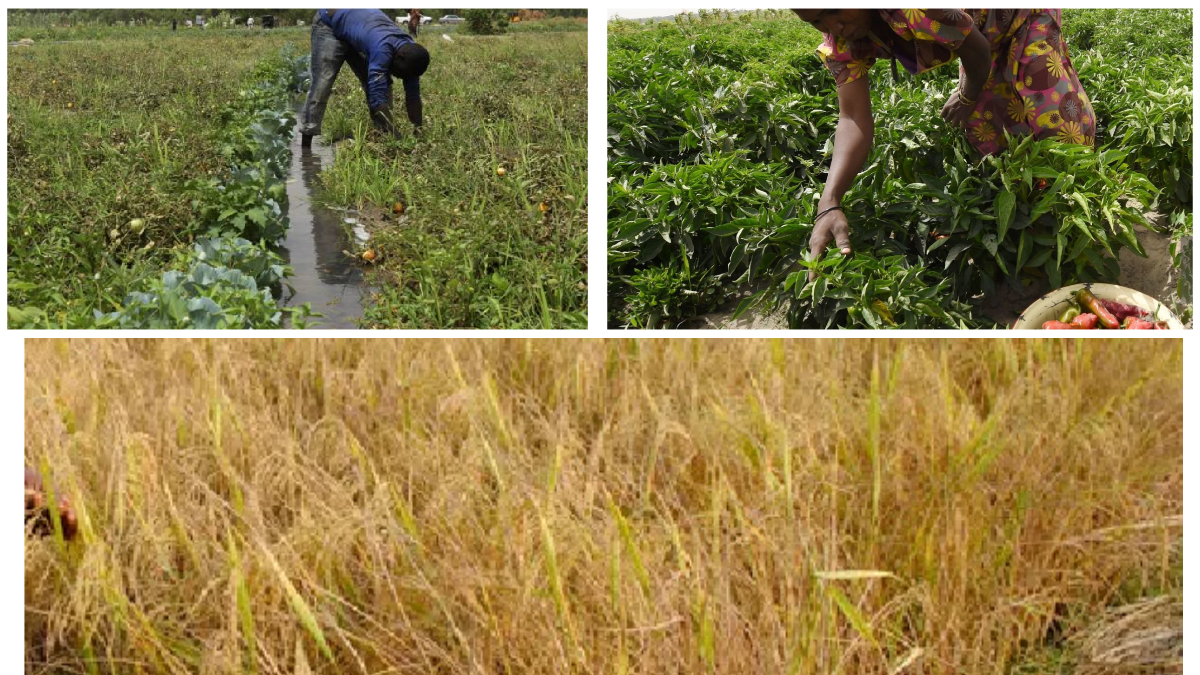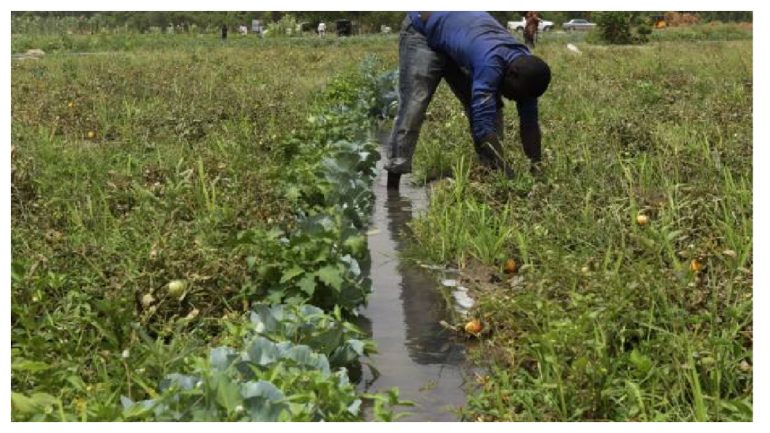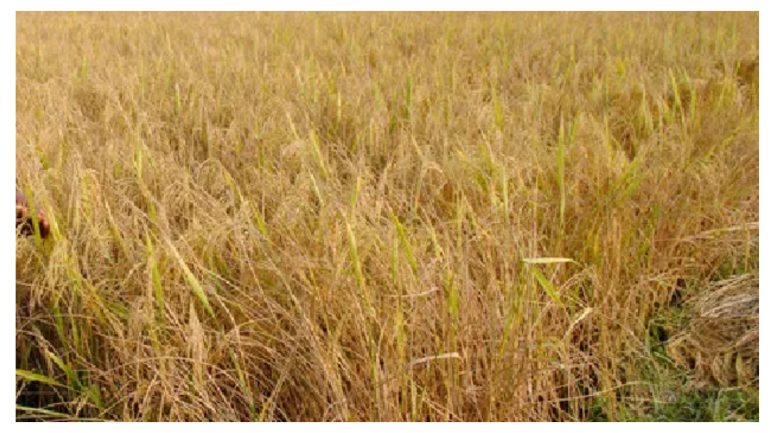Listeners:
Top listeners:
-
play_arrow
104.9FM Best rock music demo
-
play_arrow
Demo Radio Nr.1 For New Music And All The Hits!
-
play_arrow
Demo Radio Techno Top Music Radio
-
 play_arrow
play_arrow
Police Commissioner Launches Weapon and Riot Control Training for FCT Officers Democracy Radio

Nigeria faces significant challenges in achieving food self-sufficiency and becoming a net exporter, partly due to the lack of domestic production of essential agrochemicals like fertilizers, herbicides, and pesticides. The devaluation of the naira and forex shortages also contributes to high production costs, leading to increased market prices for food items. Photo Credit: Julian Osamoto/ Democracy Radio
Climate change is posing severe threat to food security in Nigeria, as it leads to extreme weather events such as droughts, floods, and heatwaves, all of which negatively impact agricultural production.
These events can cause crop failures, reduced yields, and increased food insecurity for millions in the country. The majority of Nigerian farmers depend on rain-fed agriculture, making them particularly vulnerable to the effects of climate change.
In Borno, a state in Northeast Nigeria, farmers express their distress over how high temperatures and unpredictable rainfall patterns are hampering their crop yields.
Abdullahi Musa, a farmer in the Jere area, stated, “This year’s farming season has been terrible for us. Our hope for a bountiful harvest was cut short by high temperatures and short rainfall.”

 Earlier this year, the Nigerian Meteorological Agency (NiMet) predicted delays in rainfall, especially in North Central states like Abia, Akwa, and Borno. NiMet advised farmers to adopt measures such as moisture preservation, zero tillage, and supplementary irrigation.
Earlier this year, the Nigerian Meteorological Agency (NiMet) predicted delays in rainfall, especially in North Central states like Abia, Akwa, and Borno. NiMet advised farmers to adopt measures such as moisture preservation, zero tillage, and supplementary irrigation.
The United Nations defines climate change as long-term shifts in temperatures and weather patterns, which can be natural or driven by human activities. The consequences of climate change include intense droughts, water scarcity, severe fires, rising sea levels, flooding, melting polar ice, catastrophic storms, and declining biodiversity.
Causes of hike in food Item
Desertification is another issue affecting food and livestock survival in northern Nigeria, particularly in 11 states. Farmers are losing farmlands and facing reduced fertility due to sand dunes as well as inadequate water.
In Abia State, a rice farmer Livinus Ayaele shared his experiences of heavy losses. “Farming is a profession I inherited from my forefathers, which has earned me bounteous harvests in the past with predictable rainy seasons,” Ayaele said. “But in the last few years, changes in the season and the amount of rainfall began to affect my crop yield. More than N2 million was lost last year as my crops dried up by the scorching sun and a few months later, a devastating flood.”


Many farmers in the affected areas claim they were unaware of NiMet’s predictions, which led them to invest in farming without considering climate change factors.
Statistics of food insecurity
UNICEF reports that nearly 25 million Nigerians are at risk of facing hunger between June and August 2023, if urgent action is not taken. The World Bank’s July report states that domestic food price inflation remains high in many low- and middle-income countries, with inflation higher than 5% in 59.1% of low-income countries.
The Boko Haram insurgency, which began over a decade ago, has exacerbated environmental degradation, displacing over 2.3 million people in the Lake Chad Basin region as of January 2018.
Shuabu Modinat, a pepper farmer, expressed concerns about the future, saying, “There will be more hunger this season than the previous due to poor farm yield, hike in food prices, and our men don’t have jobs.”

Additionally, climate change is contributing to the spread of pests and diseases that damage crops, further reducing agricultural output. Farmers are struggling to adapt to these new challenges, as traditional farming methods are no longer sufficient to ensure food security.
Addressing worsening food crisis
To address the worsening food crisis, urgent action is needed. This includes implementing climate-smart agricultural practices, providing farmers with access to climate-resilient seeds and technologies, improving water management strategies, and strengthening agricultural extension services to support farmers in adapting to the impacts of climate change.
Investing in sustainable agriculture, promoting diversification of crops, and building climate-resilient food systems are essential to ensure food security and alleviate the suffering of farmers and vulnerable populations in Nigeria. Collaborative efforts from the government, civil society, and international organizations are crucial to address the food crisis exacerbated by climate change and support farmers in adapting to the increasingly challenging agricultural landscape. Reporting by Julian Osamoto
Written by: Julian Osamoto
Climate Change Democracy Radio FAO Federal Government Ministry of Agriculture UNICEF Worl Bank
Similar posts
Nigeria Volleyball Reporters Celebrate CGC Adeniyi on Birthday
todayJanuary 19, 2026 2
Copyright Democracy Radio -2024


